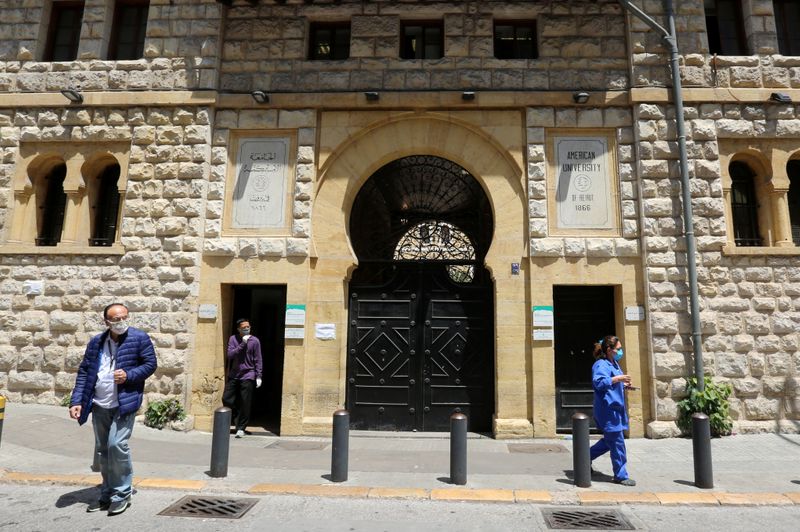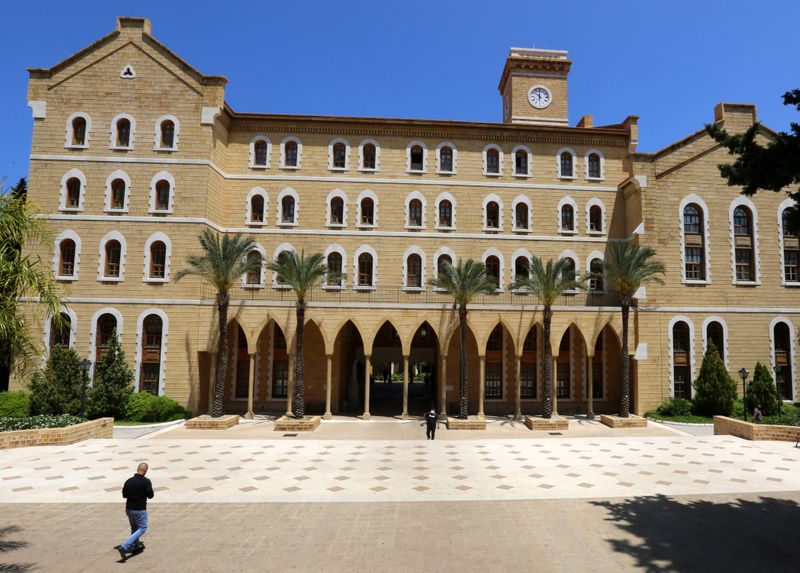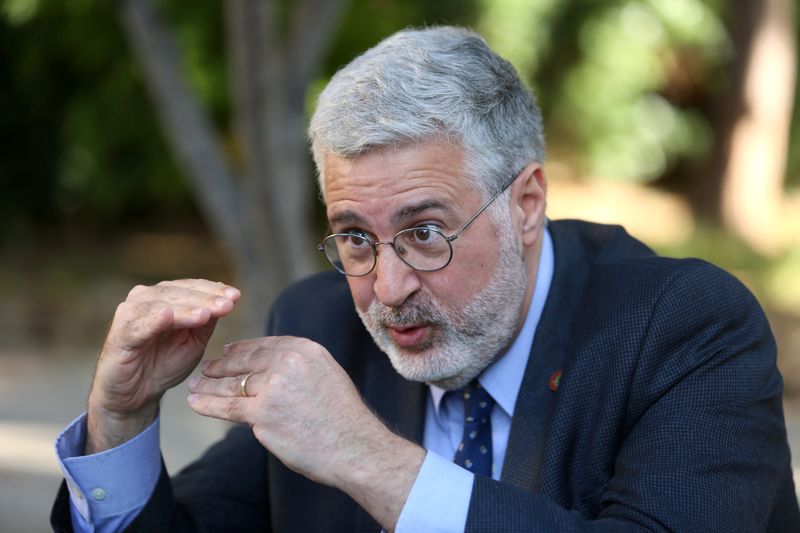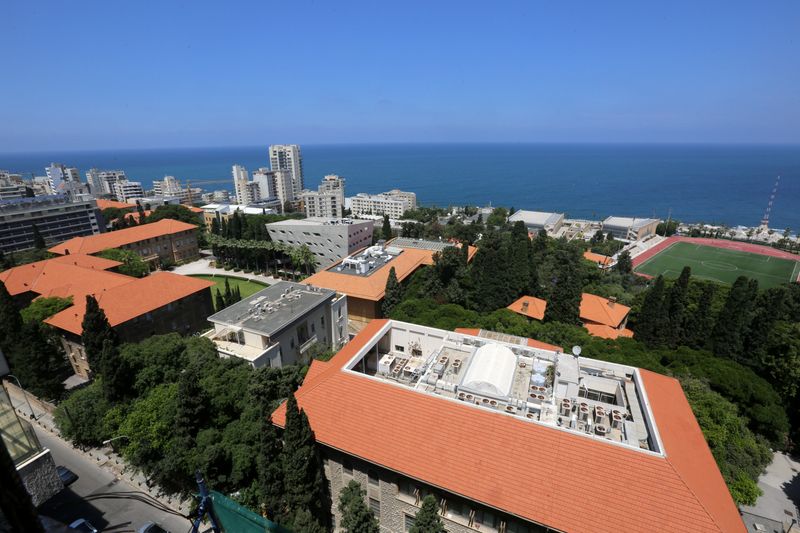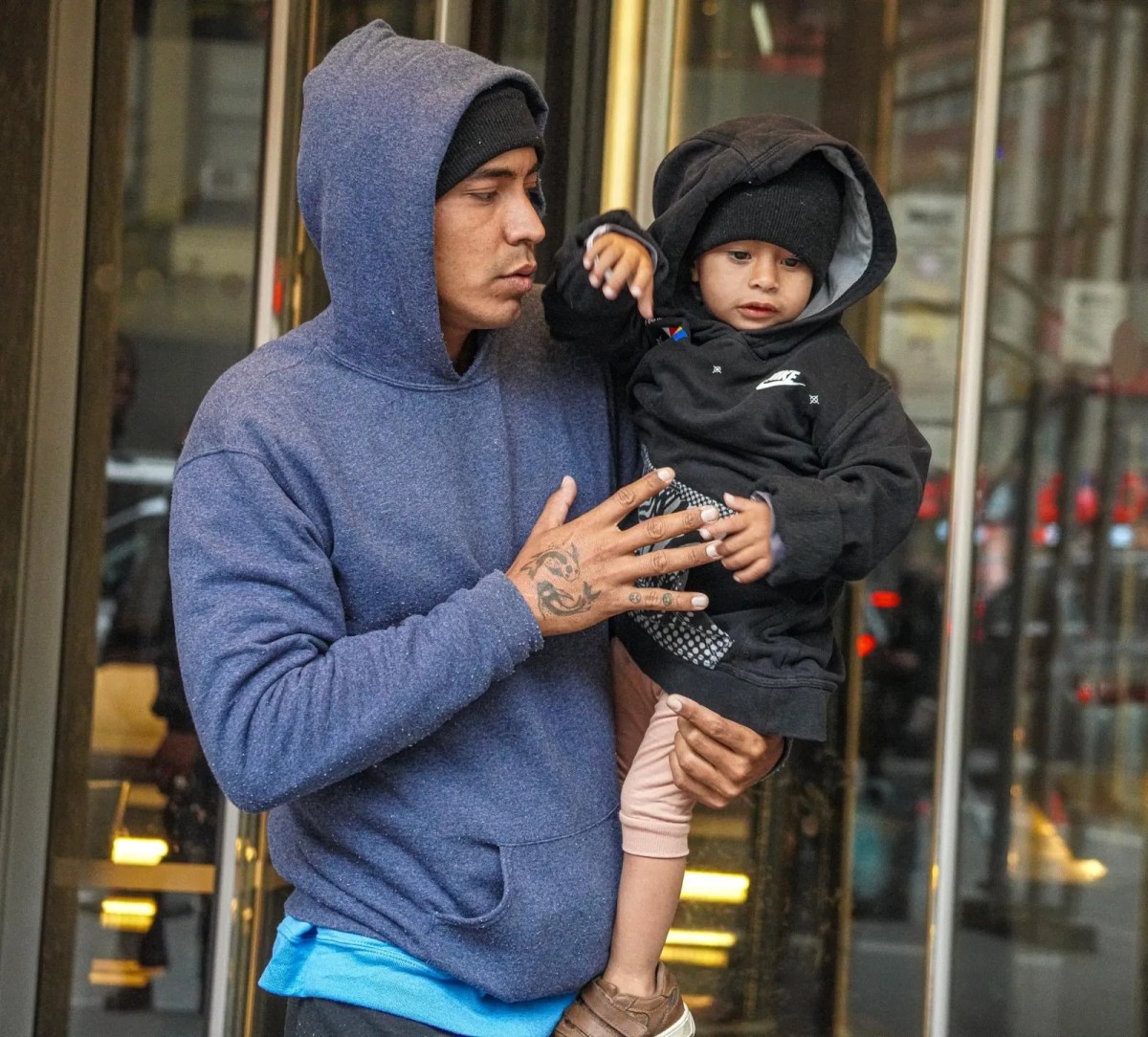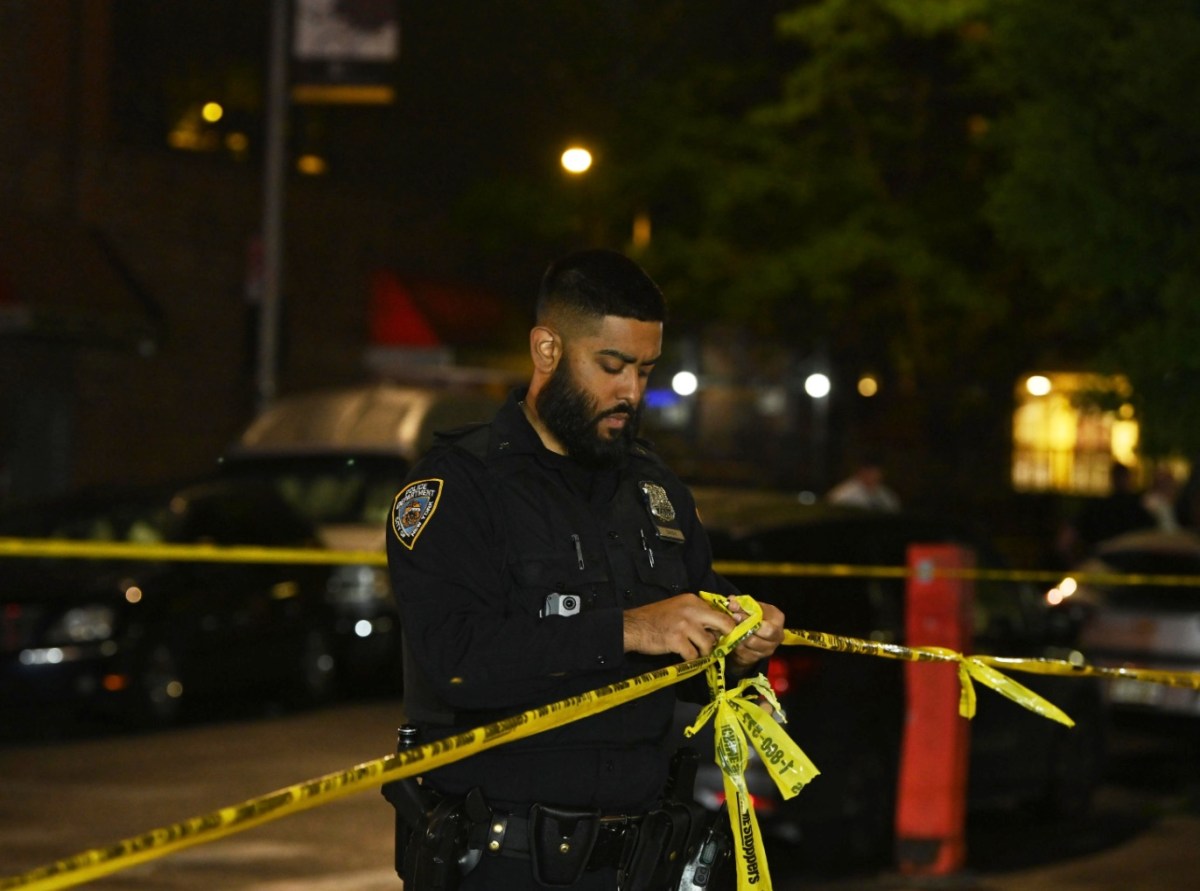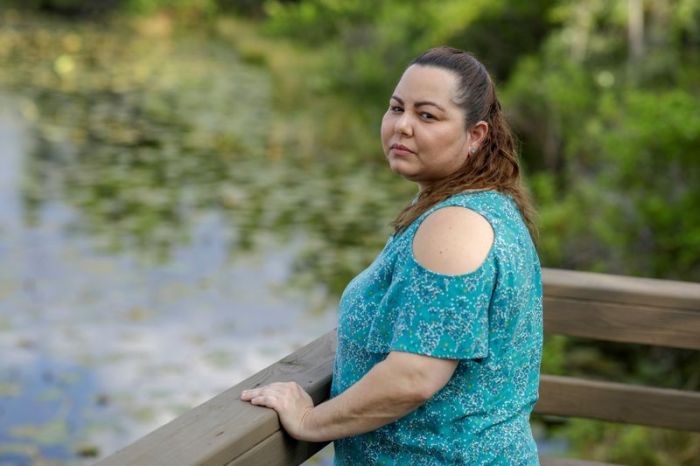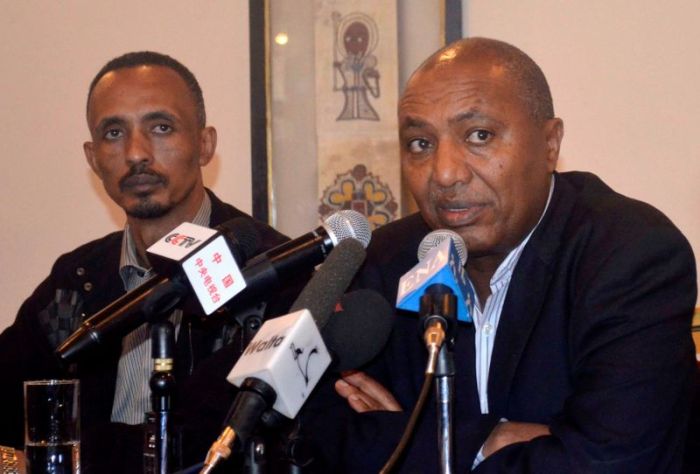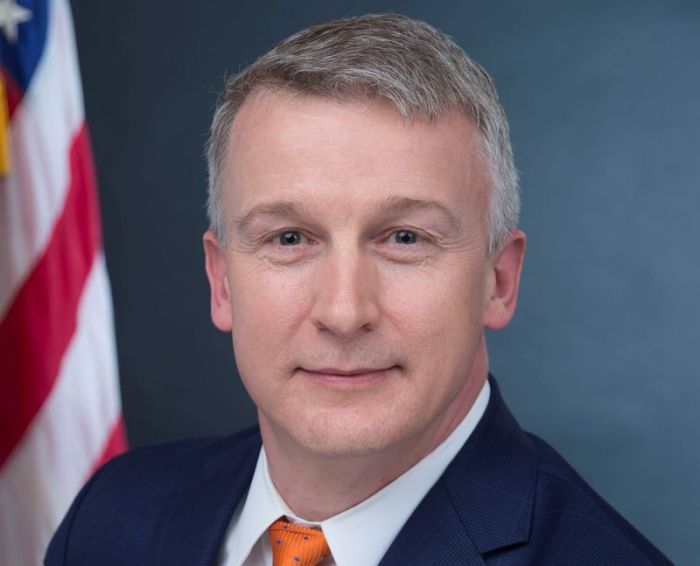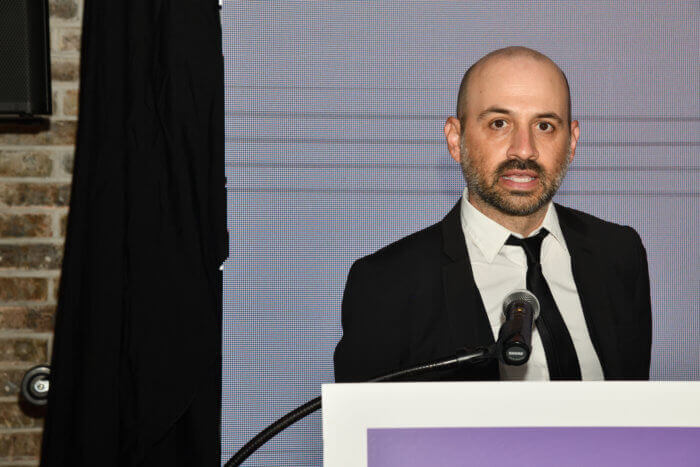BEIRUT (Reuters) – One of the Arab world’s oldest universities faces its worst crisis since its foundation, with huge losses, staff cuts and an uphill battle to stay afloat as Lebanon’s economic meltdown and the coronavirus pandemic hit revenues.
The American University of Beirut has graduated leading figures in medicine, law, science and art as well as political leaders and scholars over the decades including prime ministers.
It has weathered many crises, including Lebanon’s 1975-1990 civil war, when a number of staff including two presidents were killed or abducted and a bomb destroyed one of its main halls.
But Lebanon’s problems now may be the biggest threat yet to the institution founded in 1866 by Protestant missionaries. It ranks among the world’s top 200 universities and its collapse would deprive future generations in Lebanon and the wider region of internationally recognized higher education.
“This is one of the biggest challenges in AUB’s history. The country is crashing catastrophically,” AUB President Fadlo Khuri told Reuters in an interview.
With inflation, unemployment and poverty high, many families have little means to cover food and rent, let alone tens of thousands of dollars in tuition fees.
The heavily indebted state, which defaulted on its foreign currency debt in March, owes AUB’s medical centre – which attracts patients from across the Middle East and Central Asia – more than $150 million in arrears, Khuri said.
Government officials have ruled out a haircut on the bank deposits of non-profit universities such as AUB, but Khuri still fears his institution may take a hit if a state rescue plan puts part of the burden on large depositors and includes colleges.
Along with other universities, his school has lobbied the state and, he said, received assurances from the president and finance minister that any such measures would not impact them.
But he remains worried, with government plans for plugging vast holes in the national finances not yet finalised.
Government officials could not be reached for comment.
“We have all this money they (the state) still owe us for the hospital so it’s very hard to rely on well-intentioned people who may or may not have the ability (to deliver),” he said.
The university and hospital expect real losses of $30 million this year after bleeding revenues. For 2020-2021 alone, it projects a 60% revenue reduction from this year, down to $249 million.
FIGHTING TO SURVIVE
The stark revenue forecasts rely on an “optimistic assumption” that the Lebanese pound will stabilize at 3,000 to the dollar, but Khuri has said they do not take into account a possible haircut imposed on AUB’s bank deposits in Lebanon.
Finance Minister Ghazi Wazni has said there will be a shift to a flexible exchange rate in the “coming period”.
Khuri said AUB will have to set its own rate in the meantime, taking into account people who have said they can pay in dollars to help cushion the impact of the pound’s collapse on poorer students.
AUB has already lost donations and scholarships it was expecting before the pandemic. On top of benefit and wage cuts, it is studying options such as closing whole departments and halting spending.
In an email to students and families, Khuri promised to work to protect their livelihoods and to raise money via an emergency fund.
“But there is no question that sacrifices must and will take place at every level,” Khuri wrote. “We must fundamentally change in order to survive … Saving AUB must be our only priority. And save it we will.”
(Editing by Timothy Heritage)

